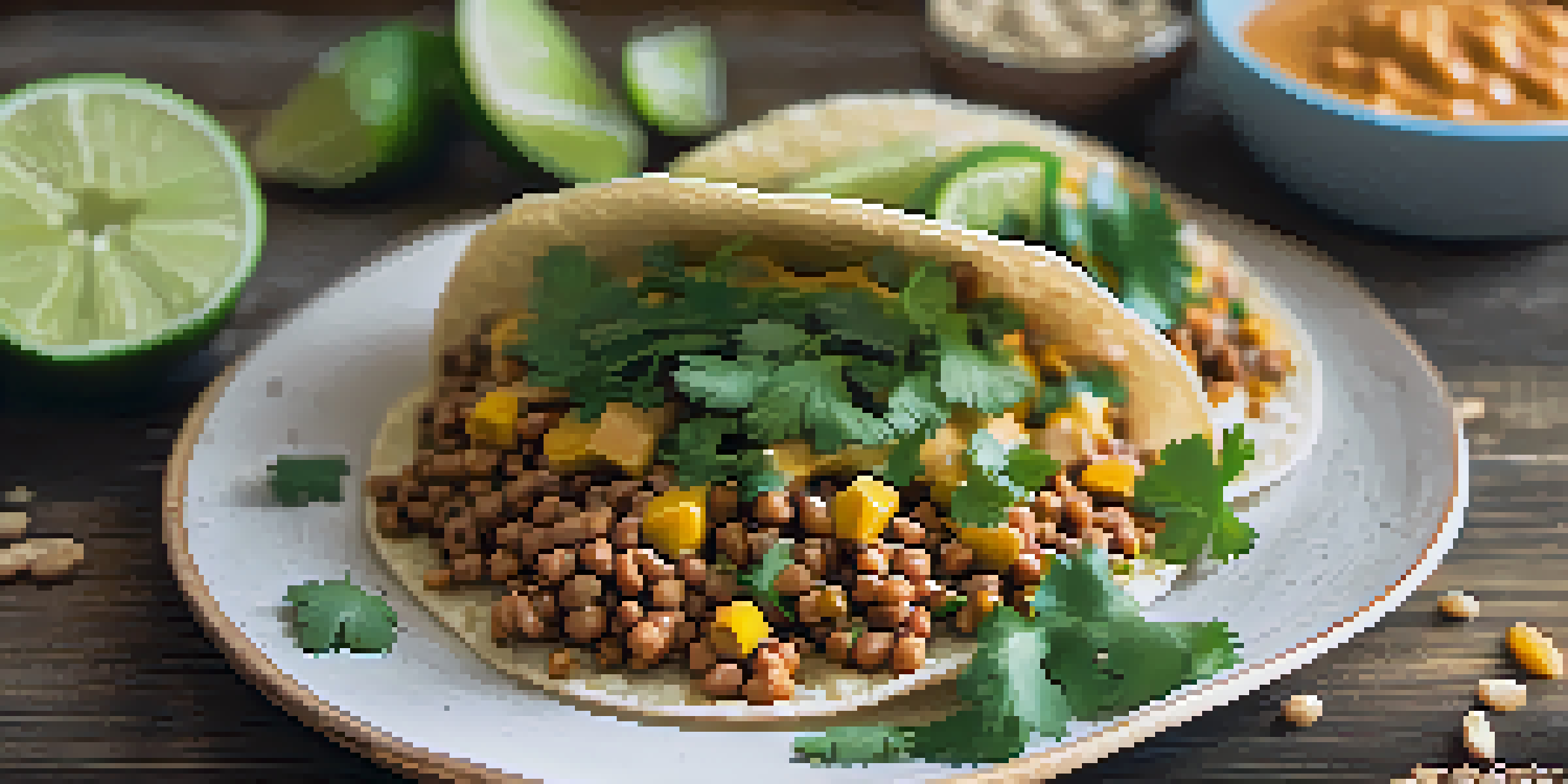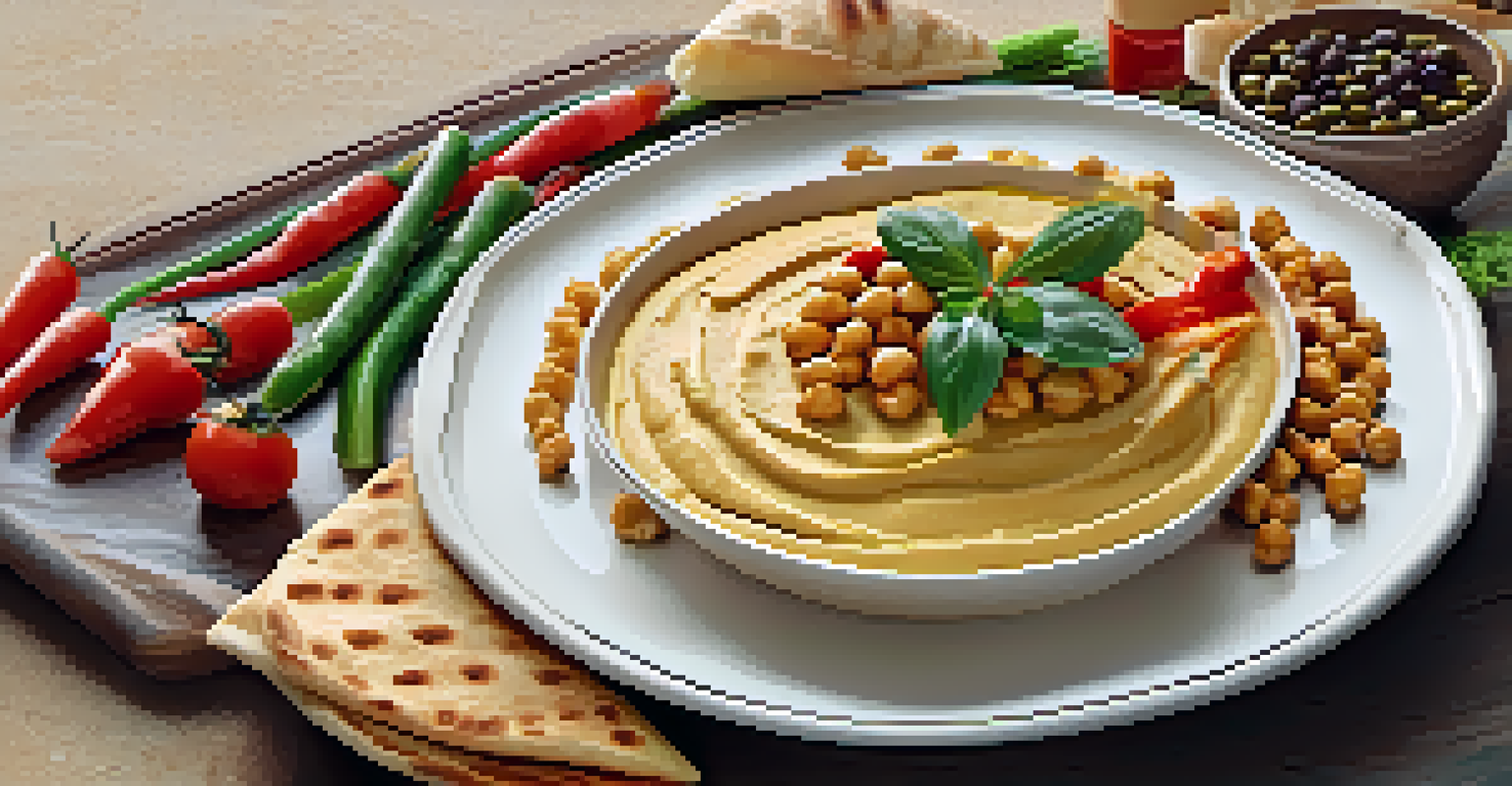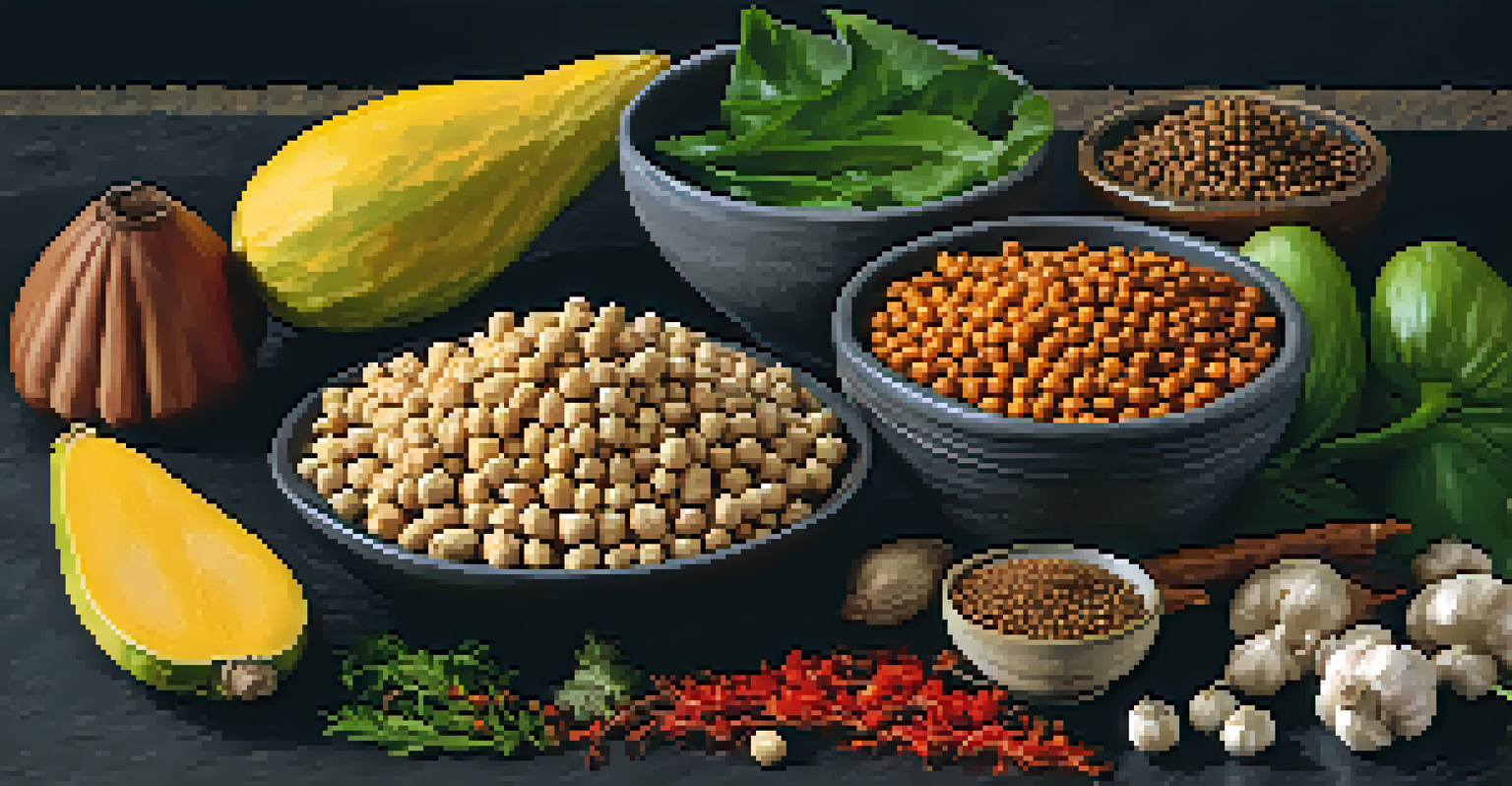The Influence of Global Cuisines on Vegan Food Innovation

The Rise of Veganism and Global Culinary Trends
In recent years, veganism has surged in popularity, driven by health, environmental, and ethical considerations. As more people embrace plant-based diets, the culinary world has responded with innovative vegan options. This shift has opened the door for global cuisines to influence vegan food, leading to exciting new flavors and dishes.
Let food be thy medicine and medicine be thy food.
Global culinary traditions offer a wealth of ingredients and techniques that can elevate vegan cooking. For instance, spices from Indian cuisine or the umami-rich flavors found in Japanese dishes can transform simple plant-based meals into gourmet experiences. As chefs explore international cuisines, they bring unique perspectives that challenge traditional notions of vegan food.
This blending of cultures not only enhances the taste but also broadens the appeal of veganism. By incorporating global influences, vegan dishes can resonate with a wider audience, inviting even non-vegans to enjoy the creativity and depth of plant-based dining.
Regional Ingredients Inspiring Vegan Dishes
One of the most exciting aspects of global cuisine is the unique ingredients that define each region. For example, the use of jackfruit in Southeast Asian dishes has made it a popular meat substitute in vegan cooking. This versatile fruit can mimic pulled pork when cooked just right, showcasing the potential of regional ingredients to inspire vegan innovation.

Similarly, Mediterranean cuisine has introduced ingredients like chickpeas and tahini, which are now staples in many vegan recipes. From hummus to falafel, these ingredients not only provide protein but also add rich flavors. By highlighting these regional ingredients, vegan chefs can create dishes that are both authentic and innovative.
Global Influences Enhance Vegan Cuisine
The integration of global culinary traditions enriches vegan cooking by introducing unique flavors and techniques.
As veganism continues to evolve, the use of diverse regional ingredients will play a crucial role in keeping the cuisine vibrant and exciting. This not only fosters creativity but also encourages sustainability by utilizing locally sourced products.
Culinary Techniques from Around the World
Innovative vegan cooking often involves experimenting with culinary techniques borrowed from different cultures. For instance, the art of fermentation, prominent in Korean cuisine with kimchi, can enhance flavors and nutritional value in vegan dishes. This technique adds a tangy depth, making plant-based meals more satisfying and complex.
You are what you eat, so don't be fast, cheap, easy, or fake.
Additionally, grilling, a staple in many barbecue cultures, can be adapted to create delicious vegan fare. Marinated vegetables, tofu, and tempeh take on a smoky flavor that appeals to traditional meat lovers. Such techniques not only diversify the cooking methods available to vegan chefs but also elevate the overall dining experience.
Integrating these techniques into vegan cooking reflects a broader trend toward culinary exploration. Chefs are no longer limited to conventional methods; instead, they are embracing a fusion approach that celebrates global influences.
Cultural Celebrations and Vegan Adaptations
Cultural celebrations often revolve around food, and this presents a unique opportunity for vegan innovation. Many traditional dishes can be adapted to meet vegan standards without losing their essence. For example, during Diwali, Indian families enjoy sweets made with milk, but vegan alternatives using coconut milk or cashew cream are now gaining popularity.
These adaptations allow vegans to participate in cultural traditions while enjoying familiar flavors. As more people seek to celebrate their heritage with a plant-based twist, it becomes clear that veganism can coexist harmoniously with cultural practices. This inclusivity enriches both the vegan community and traditional celebrations.
Social Media Boosts Vegan Trends
Platforms like Instagram and TikTok play a crucial role in spreading vegan innovation and connecting a community of plant-based enthusiasts.
Moreover, these vegan adaptations not only cater to dietary restrictions but also encourage a broader acceptance of plant-based diets. The more people see their favorite cultural dishes transformed into vegan versions, the more likely they are to embrace veganism.
Fusion Cuisine: A Playground for Vegan Innovation
Fusion cuisine, which combines elements from different culinary traditions, has become a popular trend in the food world. This approach allows chefs to create unique vegan dishes that blend flavors and techniques from various cultures. Imagine a Mexican-inspired vegan taco filled with lentils and topped with a Thai peanut sauce – the possibilities are endless!
The fusion of cuisines not only excites the palate but also encourages creativity in vegan cooking. By merging unexpected flavors, chefs can create dishes that surprise and delight diners. This sense of adventure makes vegan food more appealing to those who might otherwise shy away from plant-based options.
As the fusion trend continues to thrive, it will undoubtedly inspire more innovative vegan dishes that reflect the diverse culinary landscape of our world. This not only benefits vegans but also enriches the overall dining experience for everyone.
The Role of Social Media in Vegan Food Trends
Social media has transformed the way we discover and share food, playing a significant role in the rise of vegan cuisine. Platforms like Instagram and TikTok allow chefs and home cooks to showcase their creative vegan dishes, often influenced by global cuisines. This visibility helps to inspire others to explore plant-based cooking and try new flavors.
The visually appealing nature of vegan dishes, often vibrant and colorful, makes them highly shareable. As people document their meals online, they contribute to a growing community that celebrates vegan innovation. This sense of community fosters a culture of experimentation, encouraging others to get creative in the kitchen.
Sustainability Drives Vegan Cooking
The focus on local and seasonal ingredients in vegan cuisine aligns with growing sustainability and ethical considerations.
Moreover, social media also facilitates the exchange of ideas between different cultures. A simple hashtag can connect vegan enthusiasts worldwide, sparking trends that blend various culinary traditions, making veganism more accessible and enjoyable for all.
Sustainability and Ethical Considerations in Vegan Cooking
As awareness of environmental issues grows, so does the emphasis on sustainability in cooking, including vegan cuisine. Many global cuisines prioritize local and seasonal ingredients, which align perfectly with vegan principles. This focus on sustainability not only benefits the planet but also inspires chefs to innovate with what is available in their regions.
Ethical considerations also play a significant role in the popularity of veganism. By embracing global cuisines, people can enjoy meals that are not only delicious but also ethically sourced. For instance, traditional dishes that highlight plant-based ingredients encourage a more compassionate approach to eating.

As the connection between sustainability, ethics, and vegan cooking becomes more pronounced, it will shape the future of culinary innovation. Chefs and home cooks alike are motivated to create dishes that reflect these values, making veganism not just a diet, but a lifestyle choice.